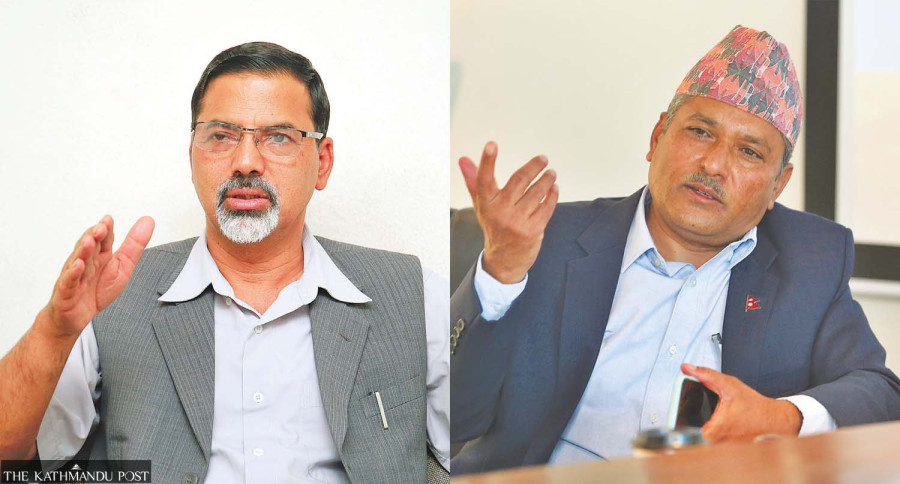Editorial
Partners in crime
The finance minister and the governor should work together to rescue the flailing economy.
The tussle between the Ministry of Finance and Nepal Rastra Bank has resurfaced, and it does no good to the already flailing economy. The central bank, an autonomous institution mandated with formulating monetary policy, controlling inflation and maintaining financial stability, has taken various measures to stabilise the economy that is under stress due to falling foreign exchange reserves and rising inflation. It has asked banks and financial institutions to raise interest rates on deposits and credit in order to bring down the ever-rising import bill. These institutions have duly followed the central bank’s directive, to considerable backlash from the private sector. And backing the private sector is Finance Minister Janardan Sharma, who has hinted of intervening, or essentially reducing interest rates. The Finance Ministry has even formed a task force under Joint Secretary Baburam Subedi’s leadership to recommend measures to address the business community’s concerns.
The finance minister has been itching to attack the central bank’s autonomy for quite some time. In early April, he formed a probe panel against Governor Adhikari, charging him with leaking sensitive information and failing to fulfil his duties effectively, leading to a suspension. It was only after the Supreme Court reinstated him through an interim order that the governor returned to office. It is important to note that the finance minister's ire against the governor stems from the latter's refusal to release Rs400 million belonging to one Prithvi Bahadur Shah, whose source Nepal Rastra Bank found worth investigating.
It is as if the finance minister and the governor are at it again — the executive heads of two critical institutions tasked with keeping the economy in good shape at loggerheads for petty reasons. The minister is intent on micromanaging the central bank, which is not only unwarranted but also dangerous as his overreach risks the autonomy of a vital institution. After their relations iced in April this year, the finance minister and the governor have avoided each other in public. This does no good to anyone. As the economic crisis deepens, the finance minister and the governor should have sorted out their differences, set aside their egos, and worked together to rescue the economy. That, unfortunately, hasn’t happened.
As if their mutual dislike was not enough, they have found other reasons to discredit each other. They have both been embroiled in controversies of their own—the finance minister failing to regain public legitimacy after his alleged policy crime of inviting two outsiders to the Ministry of Finance to change tax rates the night before the budget speech. Not one to be left behind, Maha Prasad Adhikari became the eye of the storm when a certain “M Adhikari” was listed as a member of the finance and planning department of the CPN-UML. Not only did Adhikari fail to convince the public about his supposed distinction from his namesake, the UML did not even so much as try to ward off the rumours. Instead, the ruling coalition and the opposition party seemed to be bartering silence on the twin controversies.
Again, the cold war between the finance minister and the governor, and effectively a decay in the institutional relationship between the Ministry of Finance and Nepal Rastra Bank, could worsen the country’s already troubling economic situation. Sharma and Adhikari must iron out their differences and work in tandem so that the country can pull itself out of the financial quicksand it is fast sinking into. It would be dangerous for the country’s financial health to give continuity to this petty ego-clash and a game of political one-upmanship.




 10.12°C Kathmandu
10.12°C Kathmandu













